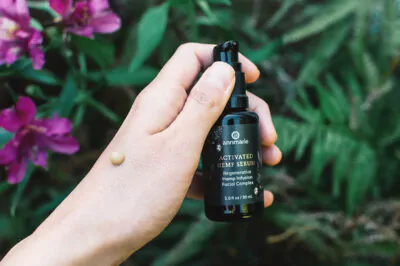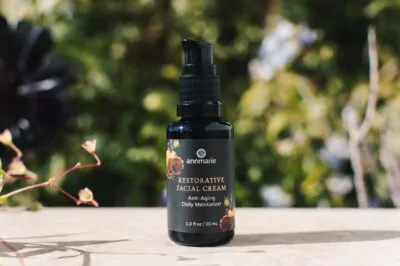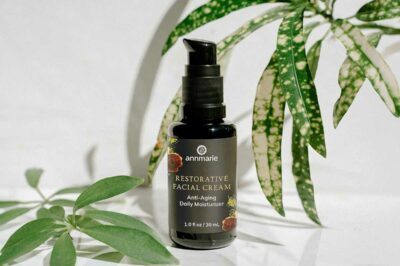Cold temperatures, chilling winds, and dry, cold air can all wreak havoc on skin. Dry air saps skin of moisture, leaving it parched, cracked, and itching — so do central heating systems and low humidity.
If you're suffering from chaffing, chapping, and the general appearance of weather-beaten skin, here are some tips that may help.
Your skin needs extra care in the winter—
but be careful which products you use.
Improve the Look of Your Skin
You can start by being more protective of your skin. Try these tips:
- Avoid harsh products: Soaps, synthetic detergents, and harsh chemicals in over-the-counter cleansers can all rob skin of necessary moisture, while contributing to the breakdown of the outer layer. Sodium lauryl sulphate is one of the main ingredients that irritates skin and dries it out. Choose gentler, more natural and moisturizing cleansers.
- Avoid hot water: Though hot water feels wonderful in the winter, it contributes to dry skin by washing away natural oils. Go lukewarm as often as you can, and refrain from excessive washing.
- Wear protective clothing: Gloves and scarves protect your face and hands from harsh winter weather.
- Eat and drink for moisture: Your skin is nourished from the inside out, so your diet can help you avoid dry and cracked skin. Drink plenty of water every day—most of us tend to crave water less in the winter months, so make a point of drinking more often. Add some oily fish to your diet or take an omega-3 supplement to support the skin's own moisture levels. Avoid alcohol, as it dehydrates the body.
- Exfoliate: Exfoliation becomes even more important when you have dry skin. You need to get rid of it before your moisturizer can penetrate. Use a light, gentle daily polisher that contains small, natural granules. (Try my Purifying Mud Mask either on both your face and hands a couple times a week.) For all-over body exfoliating, you can try “dry brushing,” an ancient approach to exfoliating that really works. Simply get a dry-skin brush (most are made of natural, not synthetic brushes)—the long-handled ones work best for all-over body brushing—and before you bathe or shower, use circular motions from your toes up and from the neck, down. Exfoliating will make moisturization much more effective after cleansing.
- Buy a humidifier: Particularly if you live in a dry climate, a humidifier becomes critical in the winter months. If you have only one, use it in your bedroom overnight.
Choose Supportive Skin Care Products
The next thing you want to do is feed your skin what it needs to deal with harsh winter conditions. Try these tips:
- Gently cleanse: Instead of harsh, sudsy cleansers, try more oil-based ones that leave your natural oils intact. If your skin is dry, try our Aloe-Herb Cleanser. If you're suffering from winter clogged skin, choose the Citrus Mint Facial Cleanser, which helps unclog pores without over-drying.
- Moisturize: Apply it more often than you would in the summer, and always apply within three minutes of getting out of the bath or shower. You don't want just any moisturizer, however. Many over-the-counter brands have alcohol, preservatives and petroleum ingredients that actually contribute to dryness over time. You want to look for ingredients like comfrey, which is a natural source of allantoin. Allantoin is known for its moisturizing and softening properties. You'll find it in my Herbal Facial Oils for Normal and Combination Skin and for Oily Skin. You also want to moisturize all over—arms, legs, elbows, ankles. Coconut oil is a great ingredient for body moisturizing, as it's not only hydrating, but protective. You'll find it in my Coconut Body & Face Oil. Other helpful herbs for dry skin include aloe, calendula, rose hips, and chamomile.
- Use oatmeal: A little oatmeal in your bath can help calm your dry skin. Lavender oil can also help moisturize—as well as make your bath luxurious!
- Don’t forget sunscreen: It's just as important in winter as in summer, as UV rays can breakdown the skin's outer layer, leading to more moisture loss. Just be sure to use safe options.
- Try moisturizing masks: Some masks are designed to cleanse and tighten, while others feed your skin with moisture and nutrients. During the winter months, you may need more moisturizing masks. Try my Coconut Honey Mask for delicious, deep moisturization.
How do you combat winter skin? Have you tried our Restore skin care product line yet? Please share your tips & your thoughts in the comments section below.








One key is to drink LOADS of water. Try to stay away from overly abrasive exfoliants as well and definitely only use an exfoliant a couple times a week max. When you exfoliate too much, you dry the skin even more and over-irritate (causing red patches and breakouts). Charcoal exfoliants are a solid, deep clean.
I don’t know if it’s just me or if everyone else encountering problems with your
blog. It seems like some of the written text on your content are running off the screen. Can someone else please comment and let me know if this is happening to them too?
This might be a issue with my web browser because I’ve had this happen before.
Appreciate it
Hi there!
Thank you for letting us know! We’re not seeing that or hearing about. It could be that your browser needs an update.